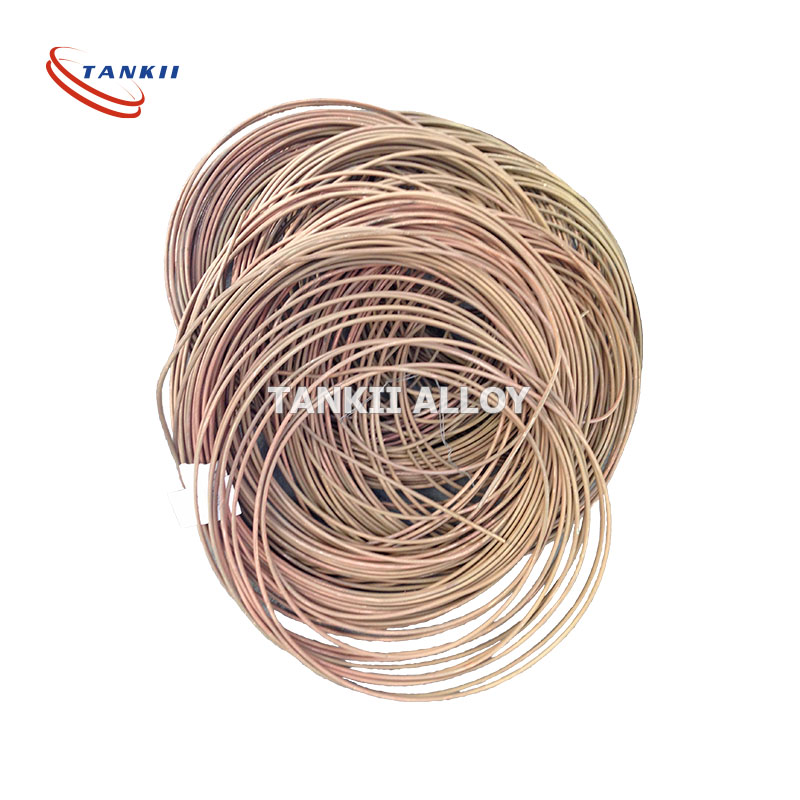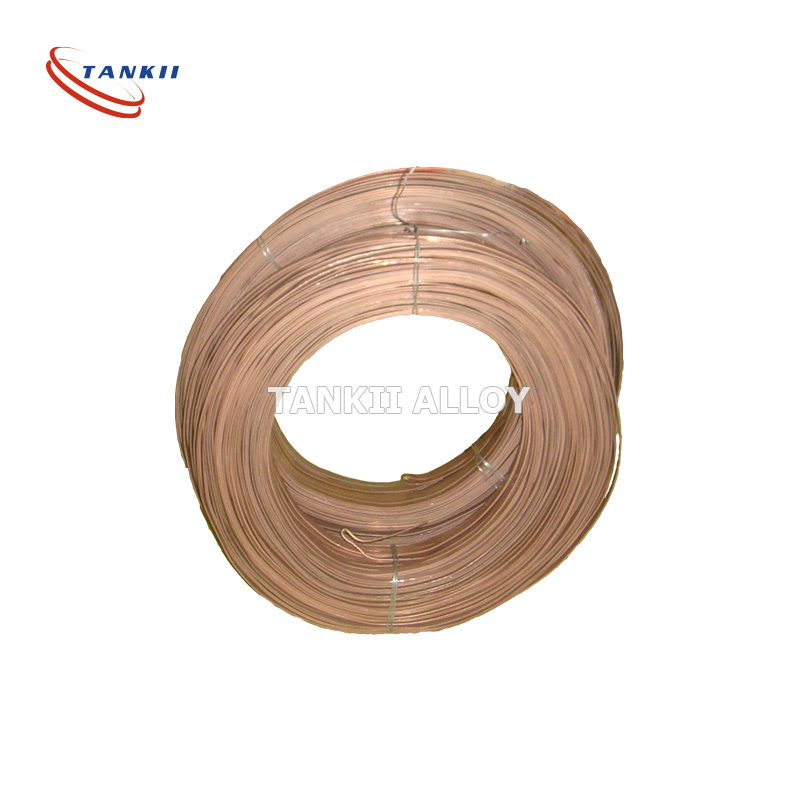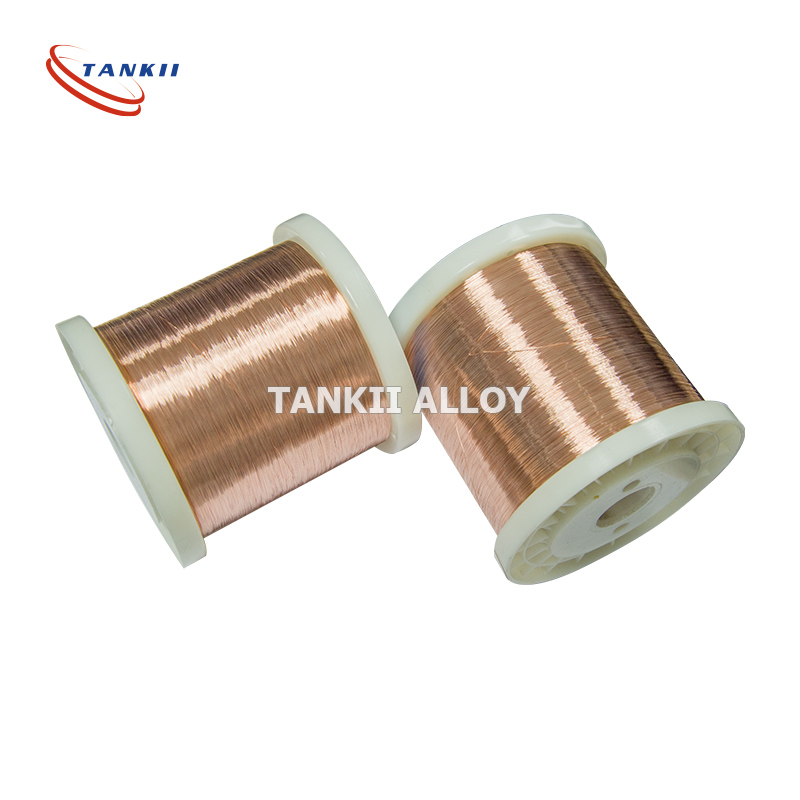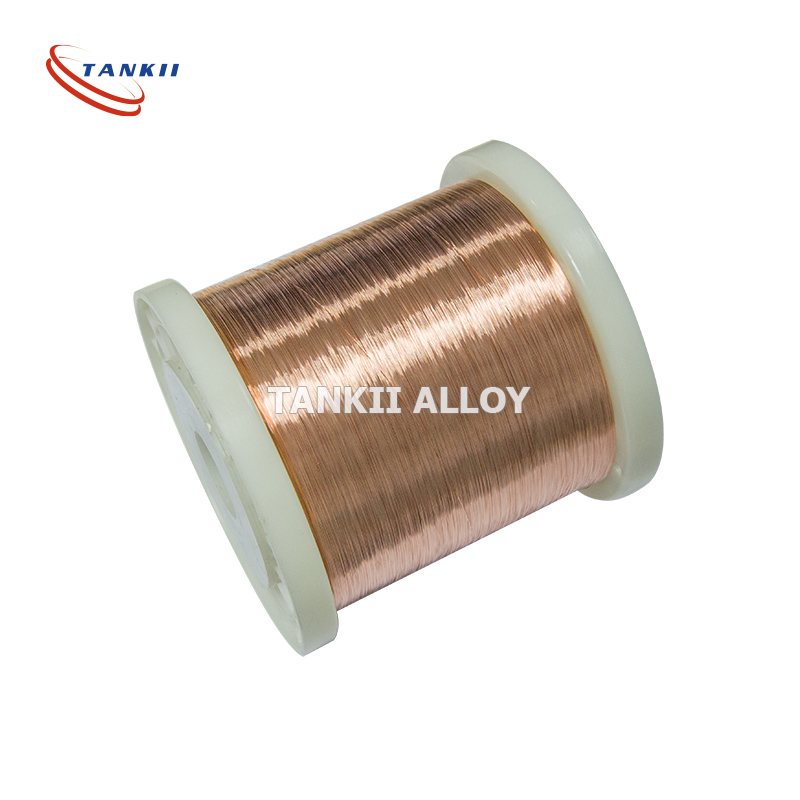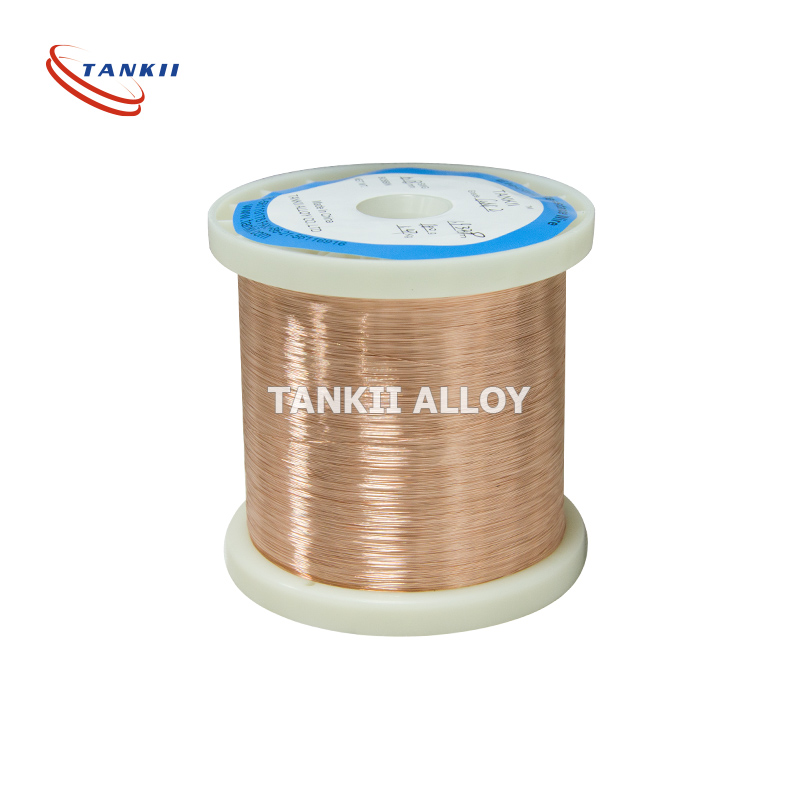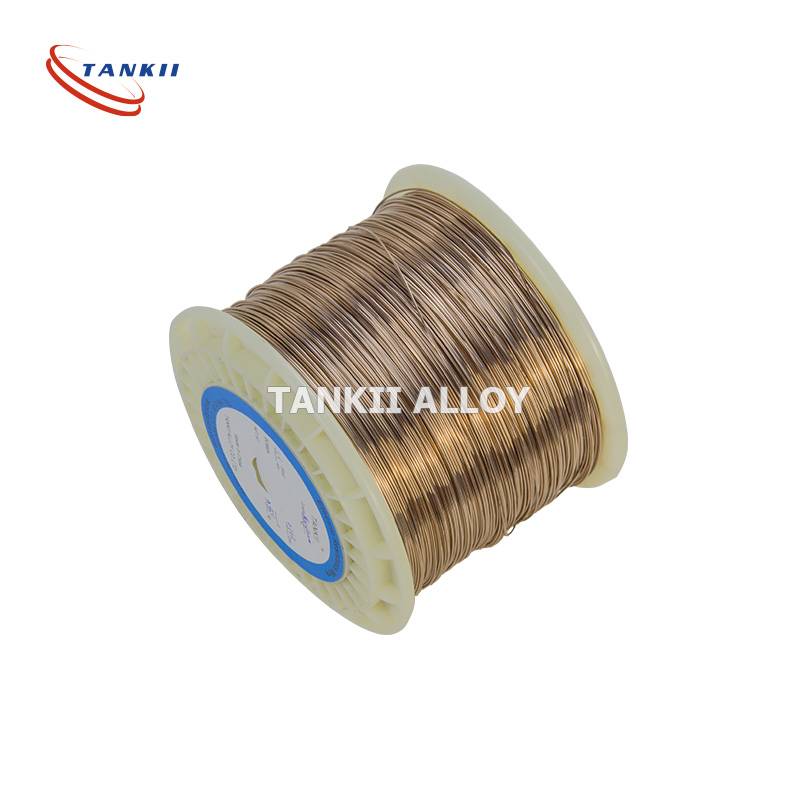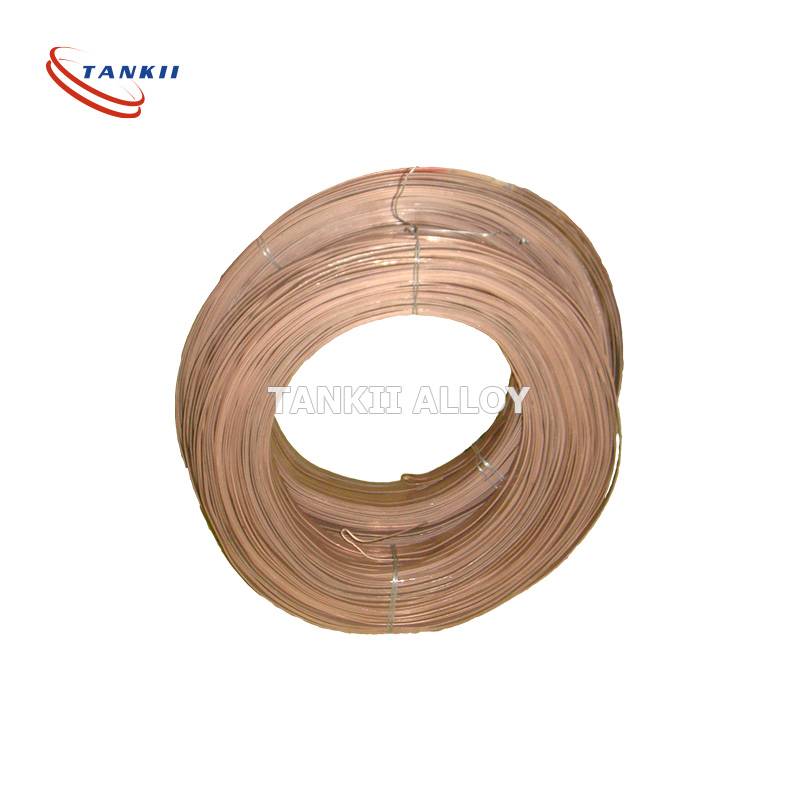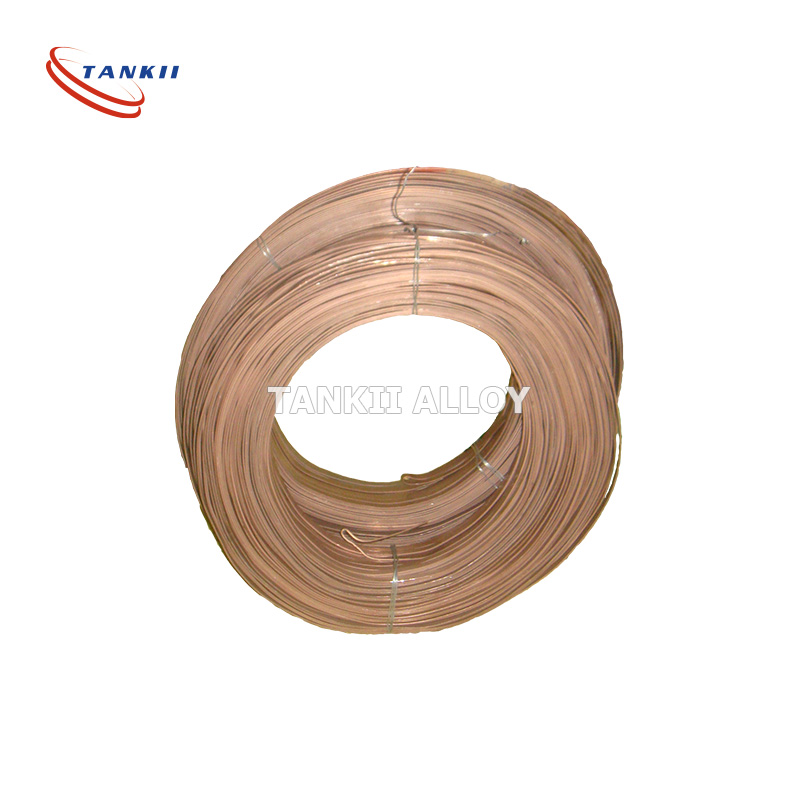MANGANIN 6j13 copper-manganese-nickel resistance alloy for Shunt Resistor

Product Description
Manganin wire widely used for low voltage instrumentation with the highest requirements, the resistors should be carefully stabilised and the application temperature should not exceed +60 °C. Exceeding the maximum working temperature in air may result in a resistance drift generated by oxidizing. Thus, the long-term stability can be affected negatively. As a result, the resistivity as well as the temperature coefficient of the electric resistance may slightly change. It is also used as low cost replacement material for silver solder for hard metal mounting.
Manganin Applications:
1; It is used for making wire wound precision resistance
3; Shunts for electrical measuring instruments
Manganin foil and wire is used in the manufacture of resistors, particularly ammeter shunts, because of its virtually zero temperature coefficient of resistance value and long term stability. Several Manganin resistors served as the legal standard for the ohm in the United States from 1901 to 1990. Manganin wire is also used as an electrical conductor in cryogenic systems, minimizing heat transfer between points which need electrical connections.
Manganin is also used in gauges for studies of high-pressure shock waves (such as those generated from the detonation of explosives) because it has low strain sensitivity but high hydrostatic pressure sensitivity.








